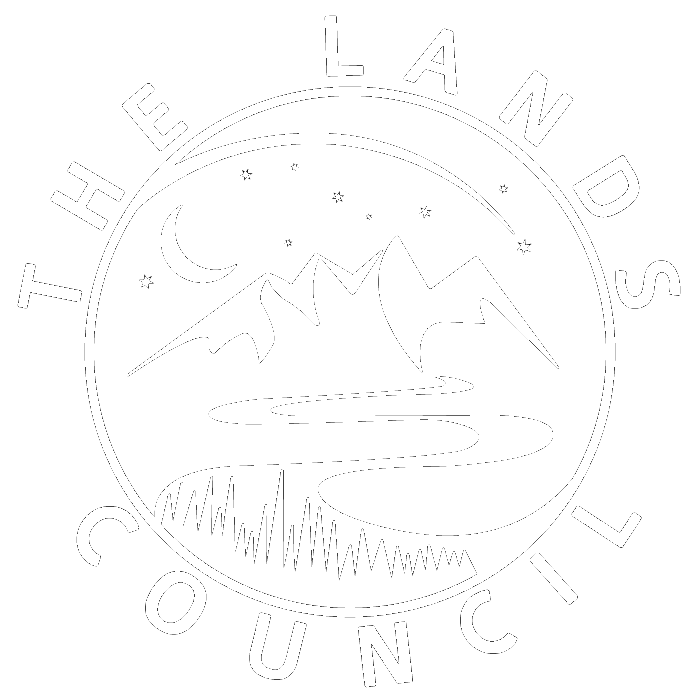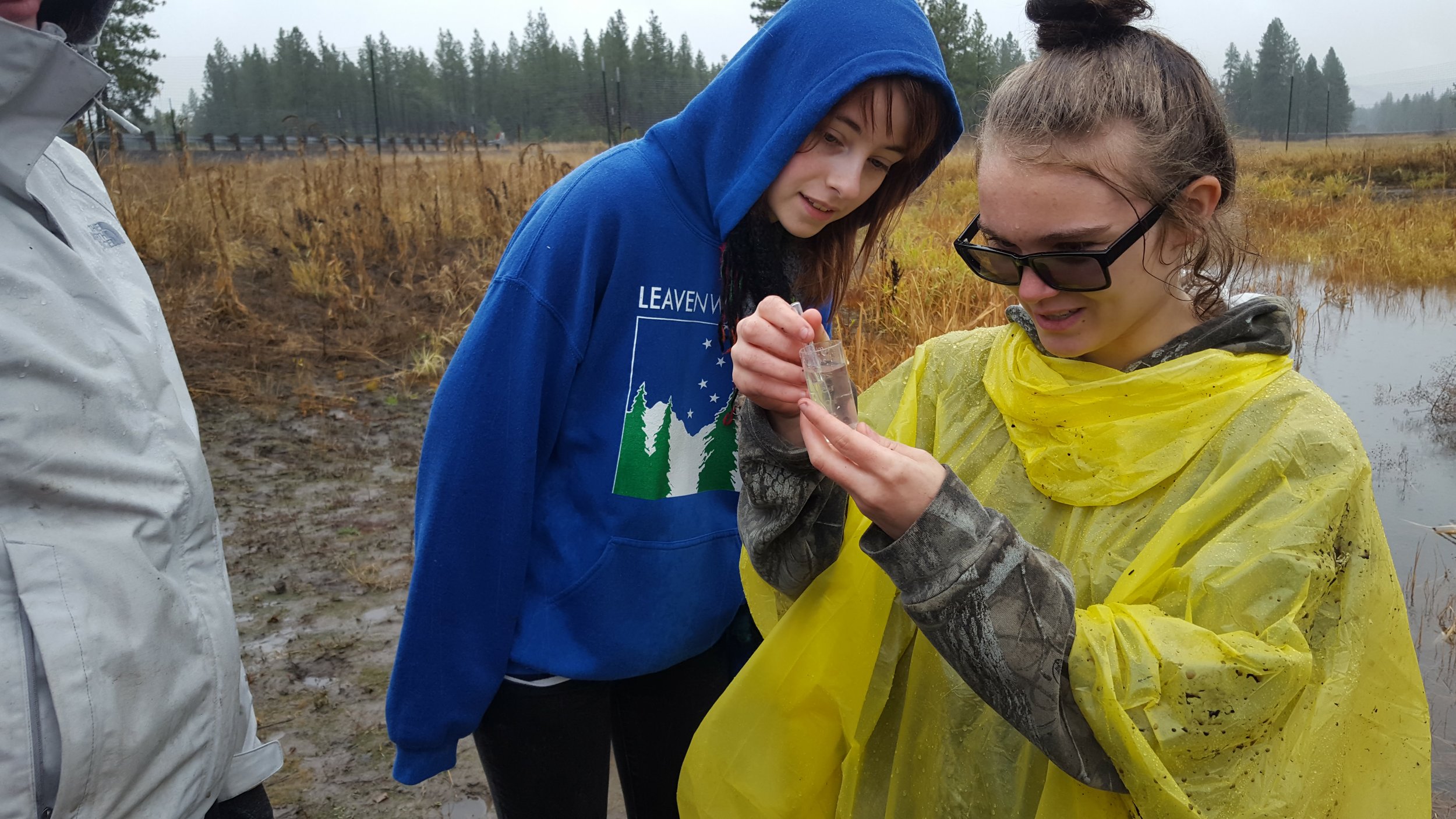We are committed to creating a sustainable future & lasting LEgacy for future generations
We work in local schools to get students outdoors, and we educate them on the natural world, water quality, and resource issues.
Nature is everywhere… and yet many students have little opportunity to get outside and experience it! Kids have become increasingly disconnected from the outdoors and lack a true understanding and appreciation for the bountiful forests, water, and wildlife of the Inland Northwest. Many schools lack field trip budgets for secondary school science classes and students spend most of their time inside the “four gray walls” of the traditional classroom. This can foster apathy, particularly for those who are hands-on learners; and promote physical inactivity, eventually resulting in diseases like childhood obesity and Type II Diabetes.
Whether it’s through planting trees, weaving BDAs, testing water quality, teaching SnowSchool on Mt. Spokane, or leading hikes, The Lands Council encourages youth to “get their hands dirty and their feet wet!”
Our outdoor K-12 environmental education program restores the connection between youth and nature by enabling students to get outside, practice field science, and be physically active. Employing our “3E” outdoor environmental education model, we expose students to diverse outdoor experiences, empower them with relevant knowledge and skills, and encourage them to take appropriate action. Blurring the lines between “learning” and “fun,” we teach students about the resiliency of the natural world…which provides them with pathways to overcome personal challenges, helps them build confidence and self-worth, and motivates them to become responsible, productive members of society.
By transferring our appreciation and respect for our forests, water, and wildlife to our community’s youth, we are directly investing in the future of our environment. We strive to empower the leaders of tomorrow with the knowledge and passion to become—and remain—good stewards of the environment we’re working so hard to protect today.
To date, TLC has offered outdoor environmental education programming to thousands of kids in dozens of schools in the Spokane and Coeur d’Alene area. Many of our students are at risk of dropping out of school; deal with issues such as learning disabilities, anger management, substance abuse, neglect, domestic violence, and teenage pregnancy; and have little to no experience with the outdoors and lack a connection to it.
4,296 students participated in a field trip or education activity with TLC in 2024.
Our outdoor exploration opportunities offer kids a safe, stimulating environment in which to learn, grow, be active, be inspired, and be exposed to new paths in life. We mentor these students and help role model positive, healthy life skills and behaviors, promote leadership and kinship in the outdoors, familiarize students with career/professional opportunities in the natural resources and environmental sciences, and encourage them to follow their passions.
Here are some highlights of The Lands Council’s outdoor youth environmental education program
Snow School
The Lands Council is a certified “Snow School” site. SnowSchool is a K-12 educational program that helps connect youth across the country to snow science and winter recreation. As a SnowSchool site, our “Snow Science and Water Resources in a Changing Climate” unit is promoted nationally.
512 students participated in a SnowSchool trip with TLC in 2024.
As part of the Mt. Spokane field experience, students don snowshoes and hike up a hill. They dig snow pits to the ground (which can be 7 feet!); identify, mark, and measure snow layers; and take mass and density measurements. This allows them to calculate snow water equivalency - the amount of water that will ultimately recharge our rivers, lakes, and aquifer. We explore the relationship between our mountain snowpack and wildfires and discuss how climate change and local population growth are projected to impact the snowpack. Students also participate in a scavenger hunt focusing on plant and animal adaptations to winter (e.g. hibernate, migrate, tolerate) and learn about avalanche awareness and safety by performing a search-and-rescue activity using beacons and probes
Nature connect partnership with Refugee immigrant connections spokane
The Lands Council (TLC) partners with Refugee & Immigrant Connections Spokane (RICS) on the Nature Connect Program. Nature Connect focuses on building connections and breaking down barriers by providing enriching outdoor experiences for local refugee and immigrant children, from elementary to high school age. Through this collaboration, TLC and RICS work together to foster a sense of belonging and community in nature, helping participants to combat feelings of isolation and ensuring that everyone has the opportunity to find solace and joy in the great outdoors.
With The Lands Council's environmental education expertise and guidance and RICS' connection to adolescent, refugee and immigrant clients in our area, we are developing an experiential outdoor education program to introduce these children to local public lands and green spaces. The program aims to empower participants to learn about the area's flora and fauna, natural and human history, and develop essential social-emotional skills. Our goal is for participants to feel like welcomed and valued members of our community and to understand that public lands are for them, too. We believe that everyone, regardless of background, deserves to feel at home in nature, and we are committed to promoting inclusion, diversity, and expanded access to the outdoors for all who wish to enjoy it.
Partnership with Cheney Middle School, Eastern washington university, and US Fish and Wildlife Service
The Lands Council has been partnering for over 5 years with the Education Department at Eastern Washington University, the US Fish & Wildlife Service (Turnbull National Wildlife Refuge), and Cheney Middle School. In the fall, seventh grade students, led by EWU pre-service teachers, plant native trees and shrubs along newly-excavated ponds and wetlands along Marshall Creek. They then return in the spring to test water quality and sample for macroinvertebrates. This win-win situation has, to date, allowed us to restore nearly 3 miles of contiguous riparian habitat along four different properties and provide meaningful, hands-on, practical water quality educational programming to over 1,000 students!
Partnered Schools and Youth Programs
Centennial Middle School
Central Valley High School
Chase Middle School
Cheney High School
Cheney Middle School
Cheney WIN Academy
Eagle Peak (Formally Bancroft)
Ferris High School
Freeman High School
Garfield Elementary
Garry Middle School
Glover Middle School
Holmes Elementary
Hutton Elementary
Innovation High School
Lake City High School
Lewis and Clark High School
Liberty School
Linwood Elementray
Martin Luther King Center
Mead Alternative High School
Mead High School
Mica Peak High School
Mt. Spokane High School
North Central High School
Odyssey Youth
On Track Academy
Pinehurst Elementary
Ponderosa Elementary
Post Falls High School
Pride Middle School
Progress Elementary
Riverside High School
Rogers High School
Sacajawea Middle School
Shadle Park High School
Shaw Middle School
Sheridan Elementary
South Pines Elementary
Spokane Public Montessori
Spokane Valley Tech
Spokane Virtual Learning
St. Alysios
St. Georges School
St. Maries High School
Tekoa Elementary
The Community School
University High School
Upper Columbia Academy
Wilson Elementary
West Valley City School
West Valley High School
Ridgeline High School









